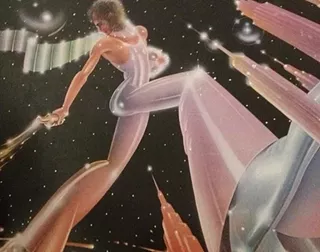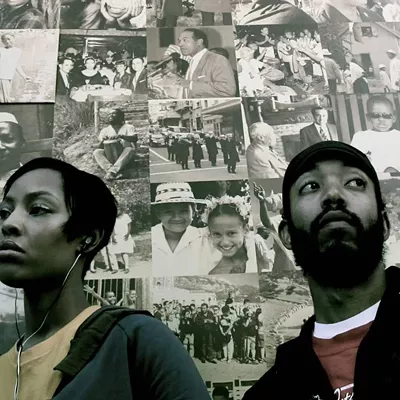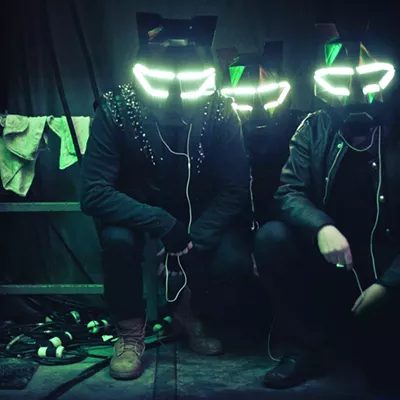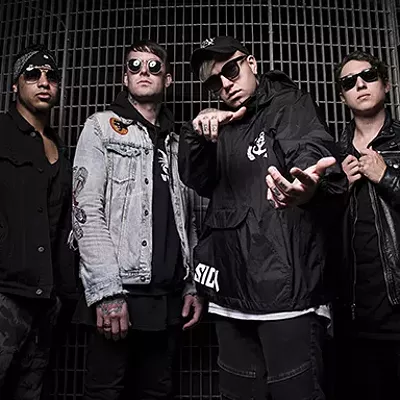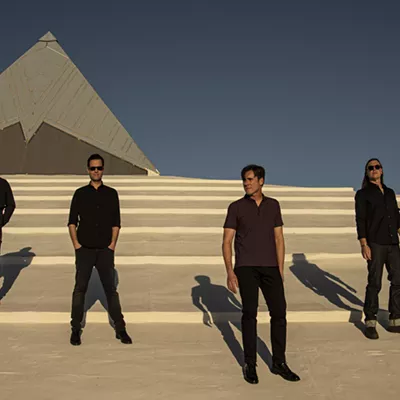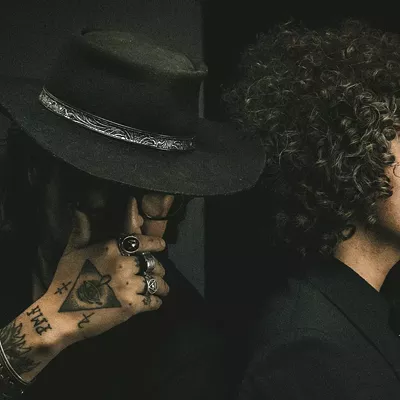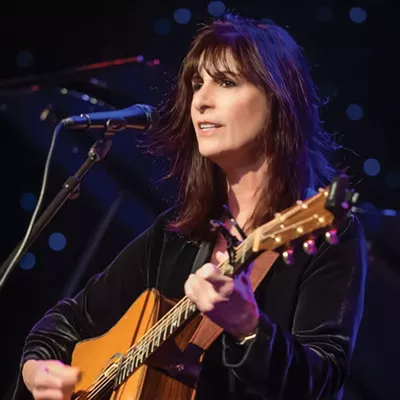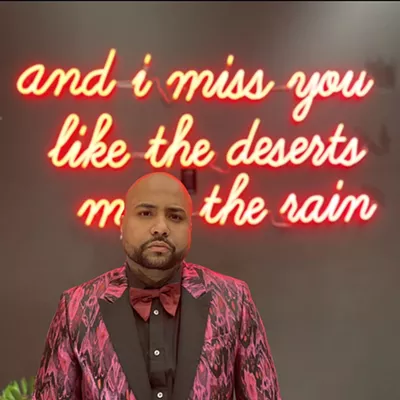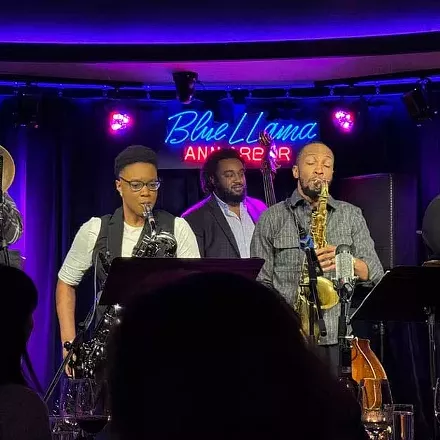Following the runaway success of its infectious debut, 2005's Apologies to the Queen Mary, the group balked at the idea of duplicating itself. Appropriately, the first sound on At Mount Zoomer is a descending synthesizer line that sounds like a balloon deflating. Still, the band's cryptic prediction disintegrates as that synth joins twitchy guitar, hiccupping drums and singer Dan Boeckner's stiff howl to form "Soldier's Grin," the majestic opening track on Wolf Parade's sophomore album.
Wolf Parade was formed in Montreal by friends Boeckner (guitar/vocals), Spencer Krug (keyboard/vocals), Hadji Bakara (synthesizers/modulators) and Arlen Thompson (drummer). Following a couple lo-fi EPs, Wolf Parade was signed to Sub Pop by Modest Mouse's Isaac Brock, who also produced the majority of the group's well-received debut. Wolf Parade's ample musical talents managed to coalesce around a Montreal music scene that was being lionized by the music press (thanks to bands like Arcade Fire). Speaking from Montreal, Bakara notes the group did not find anything particularly odd about their rapid success.
"Not strange, more easy: Not easy because we're that good or anything; just easy because of the circumstances of the time that we began, just the way that Montreal was blowing up at the time," Bakara said. "It made our becoming successful really sort of a media prop."
Media construct or not, the members of Wolf Parade were no musical dilettantes at the time of their inception. Thompson played drums on Arcade Fire's anthem "Wake Up," while Krug played in Frog Eyes, and Boeckner fronted Atlas Strategic. Despite the individual credentials, Wolf Parade shuns hierarchies.
"There's no bureaucratic dimension to Wolf Parade," Bakara said. "Sometimes, that makes it easy, and sometimes, that makes it hard, because we still do just operate like five old friends, and that means that no one can have any authority whatsoever. That's good, but it also means that we have a bunch of chaos sometimes. ... No one has ever told anyone else what to write and what not to write. It's basically, someone starts playing, and everyone joins in, and we piece it all together, and it becomes a song."
During the downtime following Apologies, the band somehow managed to fill the hours: Thompson added "recording engineer" to his resume; Bakara finished his master's degree in literature at McGill University; Boeckner formed Handsome Furs (also on Sub Pop) with his wife, Alexei Perry; and Krug helped form Sunset Rubdown and Swan Lake. The band also added touring guitarist Dante DeCaro (formerly of Hot Hot Heat) to the lineup and constructed its own studio (dubbed Mount Zoomer, appropriately), which allowed the freedom to experiment, tweak and perfect.
"(Mount Zoomer) definitely made it a lot easier for us to write better songs," Bakara said.
Conveniences aside, the world of academia is not a musical side-project that can be dabbled in from time to time. Bakara knows this, and while he turned down an acceptance to Duke University's Ph.D. program in literature this fall ("I just couldn't really see myself moving to Chapel Hill for the next five years," he said), next year is likely a different story.
"That will probably be the end of me being in Wolf Parade, when I start my Ph.D., but that's fine," Bakara said. "To me, 'musician' was never my primary ambition in life."
Hearing Bakara speak about Walter Benjamin's unfinished tome (Arcades Project) and psychoanalytical transference, it's easy to take him at his word. The music on At Mount Zoomer, at nine songs in less than 50 minutes, is similarly driven and focused, but the recording (blame the rare commodity of time) was certainly not.
"It's not so much that that's what we decided to record, as much as it is that's what we decided to structure into actual songs," Bakara said. "We had been recording our jams, and we had hours and hours and hours of rudimentary recordings of us just jamming. ... What merged from those is what we conscientiously decided to put into songs."
It's clear that the songs, many of which morph in form or tone, both grew from and were whittled out of such jam sessions. Songs like the vamping, sleek "Fine Young Cannibals" and the thumping, propulsive "California Dreamer" sound inspired and loose without being desultory. Meanwhile, album closer "Kissing the Beehive" is an explosive 11-minute prog-rock rollercoaster of evocative lyrics and kaleidoscopic sounds. The song sounds like it could go on even longer, and for a reason.
"There are versions of that song that are really long," Bakara said. "We have these ridiculous recordings of us practicing, where we'll be playing something ... and we'll go back and listen to the recording, and we'll fast-forward like 20 minutes and hit play again, and we're like, 'Holy shit, we're still playing.' Then we'll fast-forward 40 more minutes, and basically, we're still playing, and we're like, 'Jesus, what were we doing? We played this riff for like an hour or something like that?' Something about songs being written from a jam session is copacetic to ridiculously long songs and maybe some kind of form of self-indulgence or self-allowance to protract a riff."
Defining Wolf Parade may be impossible or hazardous, but one thing is certain: Tucson has been good to the group. Not only did Wolf Parade spend its first night in Tucson sleeping in a window art installation at a downtown gallery--much to the dismay of onlookers the next morning--but, ever the prolific pack, the members managed to form a side project here as well.
"(Tucson) was the birth of the alter ego of Wolf Parade," Bakara said. "We were drinking Tecate, and if three of the five members of Wolf Parade get blacked out on Tecate, we become a different band called Del Scorcho--named after the Del Taco hot sauce. That show in Tucson was the first time that Del Scorcho ever played. ... We may make another appearance in Tucson."

